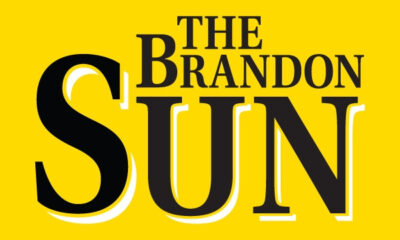Education
Canadians Question Value of Higher Education Amid Rising Costs
A recent survey reveals that nearly two in five Canadians, or 39%, are uncertain about the value of a diploma or degree in light of escalating costs and efforts required for post-secondary education. This survey, commissioned by CourseCompare and conducted by Ipsos, highlights a growing skepticism towards higher education among the population.
The confidence in the worth of higher education varies across provinces. Residents of Ontario and Quebec express the strongest belief in the value of their educational investments, while individuals in Alberta and British Columbia display higher levels of skepticism. In contrast, over half of those living in Atlantic Canada remain uncertain about their educational choices.
Generational differences are also evident in the survey results. Among Gen Z, 46% express doubts about the benefits of post-secondary education, whereas only 54% of Baby Boomers convey confidence in its value. Interestingly, graduates tend to view their education more positively; approximately 67% of university graduates assert that their education was definitely worth the investment, while just 10% disagree.
This uncertainty reflects a broader concern highlighted in CourseCompare’s new Return on Education (ROE) Index, which serves as Canada’s first national benchmark for evaluating the financial returns of diplomas and degrees. The Index analyzes critical factors such as tuition costs, student debt, program duration, and early career earnings to understand how quickly graduates can achieve a return on their educational investment.
“Every Canadian deserves to know if their education will pay off,” said Robert Furtado, founder and CEO of CourseCompare. “Understanding the likely return on a diploma or degree is as essential as knowing the interest rate on a mortgage—yet in Canada, that data is still largely out of reach.”
The initial findings from the 2025 ROE Index reveal that CourseCompare evaluated the performance of 20 of Canada’s most popular diplomas and bachelor’s degrees. Using a weighted formula, each program’s return on education (ROE) score is compared against a baseline of 100. Scores exceeding 100 indicate above-average short-term returns, while scores below suggest below-average performance.
The lack of accessible program-level return on investment data in Canada stands in stark contrast to the United States, where such information is publicly available. “Debt, tuition, and earnings data exist, but they’re fragmented across provinces,” Furtado noted. “Only the federal government can bring them together—and until it does, students and families will be left guessing.”
Youth unemployment in Canada has surged to a nine-year high, particularly affecting Ontario. Concurrently, advancements in artificial intelligence and automation could necessitate that 14% of employees globally change careers by 2030. Rising tuition fees, housing costs, and living expenses are extending average student debt repayment timelines to nearly a decade, with those holding higher debt or lower incomes facing even longer durations.
As public confidence in higher education continues to wane, concerns regarding affordability and alignment with job market demands are prompting many Canadians to evaluate educational programs based on their financial returns. This shift is leading individuals to seek quicker pathways to stable employment or pursue reskilling opportunities to enhance their earning potential.
The complete ROE Index, featuring an interactive tool for exploring costs, payback timelines, and rankings across various fields, is available at CourseCompare.ca/ROE-Index. This resource allows users to browse CourseCompare’s interactive program and course catalogues, directly connecting them with admissions teams across Canada in more than 150 in-demand disciplines, including artificial intelligence, computer science, skilled trades, nursing, construction, and early childhood education.
About CourseCompare
CourseCompare serves as Canada’s education marketplace, helping millions find top-rated schools and in-demand programs supported by verified student reviews and real employment data. Since its inception in 2018, CourseCompare has assisted over 5 million learners in acquiring in-demand skills and facilitated the unlocking of more than $50 million in scholarships and financial aid, partnering with over 100 accredited institutions nationwide.
-

 Science1 week ago
Science1 week agoMicrosoft Confirms U.S. Law Overrules Canadian Data Sovereignty
-

 Technology1 week ago
Technology1 week agoDragon Ball: Sparking! Zero Launching on Switch and Switch 2 This November
-

 Lifestyle5 days ago
Lifestyle5 days agoChampions Crowned in Local Golf and Baseball Tournaments
-

 Technology2 weeks ago
Technology2 weeks agoGoogle Pixel 10 Pro Fold Specs Unveiled Ahead of Launch
-

 Technology2 weeks ago
Technology2 weeks agoWorld of Warcraft Players Buzz Over 19-Quest Bee Challenge
-

 Science1 week ago
Science1 week agoChina’s Wukong Spacesuit Sets New Standard for AI in Space
-

 Health1 week ago
Health1 week agoRideau LRT Station Closed Following Fatal Cardiac Incident
-

 Science2 weeks ago
Science2 weeks agoXi Labs Innovates with New AI Operating System Set for 2025 Launch
-

 Technology2 weeks ago
Technology2 weeks agoNew IDR01 Smart Ring Offers Advanced Sports Tracking for $169
-

 Lifestyle1 week ago
Lifestyle1 week agoVancouver’s Mini Mini Market Showcases Young Creatives
-

 Technology2 weeks ago
Technology2 weeks agoHumanoid Robots Compete in Hilarious Debut Games in Beijing
-

 Health1 week ago
Health1 week agoB.C. Review Urges Changes in Rare-Disease Drug Funding System
-

 Technology2 weeks ago
Technology2 weeks agoFuture Entertainment Launches DDoD with Gameplay Trailer Showcase
-

 Top Stories2 weeks ago
Top Stories2 weeks agoSurrey Ends Horse Racing at Fraser Downs for Major Redevelopment
-

 Science2 weeks ago
Science2 weeks agoInfrastructure Overhaul Drives AI Integration at JPMorgan Chase
-

 Technology1 week ago
Technology1 week agoGlobal Launch of Ragnarok M: Classic Set for September 3, 2025
-

 Business1 week ago
Business1 week agoCanadian Stock Index Rises Slightly Amid Mixed U.S. Markets
-

 Science2 weeks ago
Science2 weeks agoNew Precision Approach to Treating Depression Tailors Care to Patients
-

 Technology2 weeks ago
Technology2 weeks agoInnovative 140W GaN Travel Adapter Combines Power and Convenience
-

 Business1 week ago
Business1 week agoNew Estimates Reveal ChatGPT-5 Energy Use Could Soar
-

 Education1 week ago
Education1 week agoParents Demand a Voice in Winnipeg’s Curriculum Changes
-

 Business1 week ago
Business1 week agoAir Canada and Flight Attendants Resume Negotiations Amid Ongoing Strike
-

 Health2 weeks ago
Health2 weeks agoGiant Boba and Unique Treats Take Center Stage at Ottawa’s Newest Bubble Tea Shop
-

 Health1 week ago
Health1 week agoRideau LRT Station Closed Following Fatal Cardiac Arrest Incident








